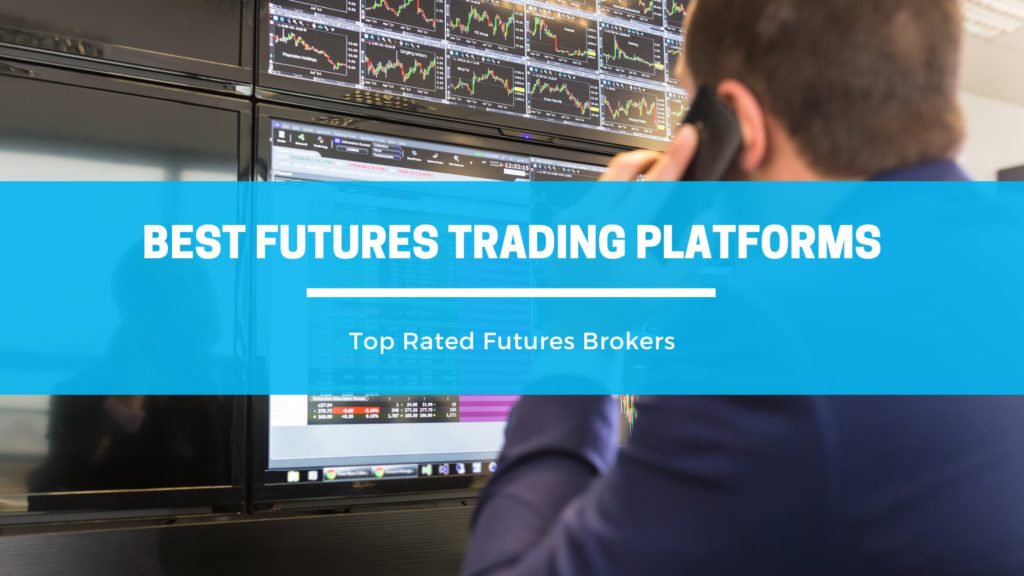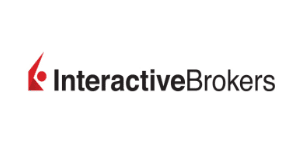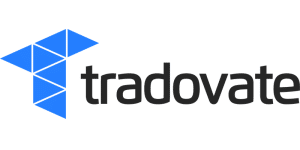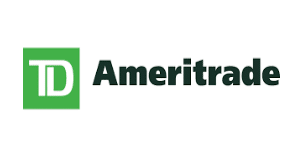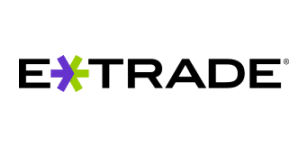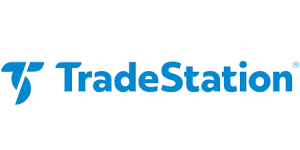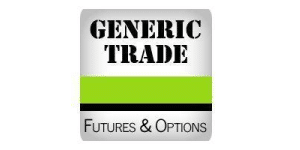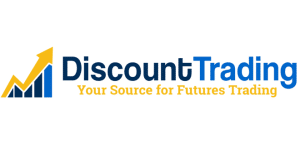This guide will take you through our research on the best futures brokers. We base our analysis on a variety of factors.
When choosing the best futures trading brokerages, you must balance low commissions, easy-to-use platforms, customer support, and research options. On top, your futures trading platform should have charting and screening tools to help your decision-making.
Best Futures Trading Platforms 2023
Here is a list of our favorite Futures trading platforms. When compiling this list, we considered usability, fees, customer support, and more.
- Interactive Brokers – Best Futures Broker Overall
- Tradovate – Best High-Volume Futures Trading Platform
- TD Ameritrade – Best For Options Trading
- eTrade – Best Discount Futures Broker
- Ninja Trader – Top Futures Brokerage For Advanced Traders
- Tradestation – Great Futures Broker
- Optimus Futures – Top Micro Futures Broker
- Charles Schwab – Top for Fund Investing
- Generic Trade – Best No Volume Requirement Futures Trading Platform
- Lightspeed – Advanced Futures Trading Trading Platform
- Discount Trading – Great For High-Volume Futures Traders
1. Interactive Brokers – Best Futures Broker Overall
Interactive Brokers is our top pick for futures
trading. They offer low fees
at $0.85 for futures and futures options trading. Their
margin rates are the lowest in the industry ranging from
1.41% up to 1.91%.
Their Trader Workstation (TWS)
platform is highly configurable with more than 50 order
types.
Interactive Brokers offers access to products in
over 135 global markets at industry-low trading fees.
Fees:
$0.25 – $0.65
per contract
Account Minimum:
$0
| Pros | Cons |
|---|---|
| Trade Futures at Lowest Fees | Beginners Might Find it Complicated |
| Advanced Trading Platform | |
| Hedging in 35 Global Markets |
2. Tradovate
Tradovate is a cloud-based futures platform with no commissions. They offer a subscription-based proprietary platform that works seamlessly across all devices.
Another great feature is their community which allows traders to connect and share trading ideas. They offer a free trial and demo account – great for getting to know the platform before opening a real money account.
Fees:
$0.00 – $0.79
per contract
Account Minimum:
Any
| Pros | Cons |
|---|---|
| Innovative Platform | Only Futures |
| Great Trading Tools | Learning Curve |
| Community of Traders |
3. TD Ameritrade
TD Ameritrade has low account minimums at $1,500. They charge
$2.25 per contract along with exchange and regulatory fees.
For day trading,their trade margin is 25% ($15,000
account minimum). TD Ameritrade offers over 60 futures
products and a virtual (demo) trading account. It is a great
all-around
investment platform for mutual funds, stocks, ,
ETFs, and Bonds.
Their trading platform Thinkorswim has
fast order execution, state of the art tools and
features.
TD Ameritrade has extensive educational content
and offers free online seminars. Their ThinkBack
feature lets users backtest trading strategies.
Fees:
$0.15 – $0.65
per contract
Account Minimum:
$0
| Pros | Cons |
|---|---|
| Commission-free stock, options trading, and ETFs | High Futures Trading Fees Compared to Competition |
| Free research available | Learning Curve |
| Large Product Selection |
4. eTrade
e-Trade is a web-based platform that is easy to use and
offers an array of tools specifically for futures trading.
Their easy-to-use platform makes them a good candidate for
beginners.
e-Trade is a tried and true trading
broker. What makes them great is their customer services and
low flat-pricing structure. They offer amazing research
features and tools.
Fees:
$1.50 per contract
per side + fees and $2.50 for cryptocurrency
futures + fees
Account Minimum:
$0
| Pros | Cons |
|---|---|
| Easy to use trading platforms | Only available to US markets |
| Amazing research tools | Only Bank Deposits |
| Live Chat Could be Better |
5. NinjaTrader
NinjaTrader is another platform that is ideal for beginners
and advanced traders. For beginners, NinjaTaders offers a
demo account and a two-week free trial when you sign up.
This gives you ample opportunity to check out the program
before committing.
NinjaTraders offer an extensive
array of technical analysis tools. They offer data feed
options and an easy-to-use interface. Their charting and
market analysis is excellent for trading futures.
A
downside of this platform is that they require a minimum
deposit of $400. They make up for this by offering low
commissions when getting a platform lifetime license.
Fees:
$0.15 – $0.25
per contract
$25 Inactivity Fee
Account Minimum:
$400
| Pros | Cons |
|---|---|
| Low trading fees | High withdrawal fee |
| Amazing research | Only offer futures and options |
| Good educational content |
6. Tradestation
Tradestation has gained a reputation for its fantastic
trading technology. They offer web-based and desktop-based
trading platforms, and both are excellent.
They
offer high-quality market data and trade executions. This
makes them a great choice for active traders.
For
futures, TradeStation offers two different pricing plans.
This gives you flexibility.
A downside of TradeStation is
that it does not offer Forex trading so keep this in
mind.
Fees:
$0.50 – $.50
per contract
Account Minimum:
$2,000
| Pros | Cons |
|---|---|
| Good educational content | Average customer service |
| Low fees for stock and ETFs |
7. Optimus Futures
Optimus Futures is an independent broker that has been in
business for nearly fifteen years. They offer competitive
commissions, low margins, and free platforms. They also have
multiple data feeds and clearing firms.
Optimus
Futures has excellent customer service that ranges from
phone to email support. For beginners or traders wishing to
brush up on their knowledge, they have a YouTube channel
with a thriving community.
Their educational content also
includes podcasts, trading guides, and webinars. This is
great for beginners.
Fees:
$0.10 (over 1000
daily contracts) – $0.50 per contract
Account Minimum:
$500
| Pros | Cons |
|---|---|
| Competitive commissions | High account minimums |
| Automated trading options available | |
| Free educational material |
8. Charles Schwab
Charles Schwab is a trading platform
suited to all traders, from beginners to professionals. They
offer two trading platforms; StreetSmart Edge and
StreetSmart Central.
StreetSmart Edge is desktop-based
and works well for active traders. StreetSmart Central is
web-based and is suited for traders who want to specialize
in futures.
Charles Schwab has good educational
(“Investment Advice”) resources for beginners.
Charles Schwab has $0 commissions which are great for active
traders.
Fees:
$2.25 per contract
Account Minimum:
$0
| Pros | Cons |
|---|---|
| No account minimums | Low default cash sweep rate |
| Commission-free options, stocks, and ETF trades | |
9. Generic Trade
Generic Trade has some of the lowest commission fees on
futures, with a maximum of $0.59 per trade. Their pricing
and fees are very transparent, which is
great.
Generic Trade has low latency for executive
trades. They can offer this because of their advanced
technical infrastructure. This also allows Generic Traders
to host high volumes of professional traders.
Fees:
$0.59 per contract
Account Minimum:
$0
| Pros | Cons |
|---|---|
| A flat rate of $0.59 for commissions on all trades | A platform fee is charged to gain access to the full suite of trading tech |
| No account minimums required | Do not offer market depth |
| 24/7 tech support and customer service | Subpar trading tools |
10. Lightspeed
Lightspeed trading is a platform best suited to active
traders who trade daily and have a larger wallet. They offer
volume discounts for active traders and low pay-per-share
commissions.
They have direct access to exchanges
and ECNs. For beginners,
Lightspeed offers free practice accounts.
The
significant downsides of this trading platform are its high
commissions and fees. They also have a high minimum opening
balance of $10,000.
Fees:
$1.29 per side
Account Minimum:
$25,000
| Pros | Cons |
|---|---|
| Advanced trading platform | High commissions |
| High minimum opening balance |
11. Discount Trading
Discount Trading is on the opposite spectrum of Lightspeed in
terms of fees. They offer low commission rates and
day-trading margins to users globally. They have low margin
rates for day-trading.
What makes them stand out is that
they offer twenty platforms, five trade routing solutions,
and a free platform.
If you’re looking for low
rates and fees, Discount Trading might be the one for
you.
Fees:
$0.19 per side
(over 50,000 monthly volume) – $0.49
Account Minimum:
$1,000
| Pros | Cons |
|---|---|
| Low commission rates | Geared toward advanced traders |
| Does not charge a monthly inactivity fee | |
| Good customer service |
What is Futures Trading?
Futures are derivative financial contracts that require traders to speculate on the future price of a security or commodity. A futures contract enables investors to buy or sell assets at a pre-determined price and time.
The futures contracts also set out the quantity of the assets. These contracts are standardized to enable trading on the trading platform. Contracts can be used to trade with speculation or hedging.
Investors can trade futures on:
- Market Indices
- Commodities (natural gas, crude oil, corn, and wheat)
- Metals (gold and silver)
- Currencies (including Bitcoin and other cryptocurrencies)
- Treasuries
- and more…
Here are a few terms to familiarize yourself with futures if you’re a beginner or looking to brush up on your knowledge.
History
Futures are one of the oldest derivative financial contracts. It originated from farmers who needed to hedge against changes in crop prices between planting and harvesting.
It is for this reason that they include livestock like cattle, grain, corn, and wheat.
What are Financial Derivatives?
Futures are financial derivatives. In simple terms, financial derivatives are instruments that get their value from the price fluctuation of another instrument.
Leverage
Leverage is a crucial aspect of trading. Leverage is used when you don’t have enough money or assets to pay for a contract when you start a trade. You will then pay the minimum margin amount upfront to enter the position.
The margin depends on the margin requirements of the asset and index that you are trading. Remember that when you trade on leverage, there is a higher potential for both gains and losses.
Variety
When trading, you should know the variations among different futures. For example, day trading futures vs stocks is different. It is important to understand that you are not buying shares but trading contracts.
Each of these contracts has a standard size that is set by the exchange that it appears on.
First Notice Day
The first notice day (FND) occurs the day after a trader is obligated to deliver the contract’s underlying commodity physically.
The FND will vary depending on the contract and the exchange rules.
It is common for investors to close their positions before the FND because they don’t want to own physical commodities.
The Last Trading Day
The last trading day is precisely what it sounds like. It is the last day the futures contract can be closed or traded before the delivery of the underlying asset.
It is important to keep price fluctuations in mind.
Stock Futures
Stock futures are cash-settled futures contracts. These are settled based on the value of the stock market index. You should know that stock futures are high-risk trading instruments in the market. Stock market index futures can be used as indicators to decide market sentiment.
Margins
Futures margins refer to the amount of money that traders deposit and keep on hand when future positions are opened. Not to be confused with a down payment.
You should also remember that although the term margin is used across various financial instruments, there are differences between its uses.
Forward Price
The forward price refers to the price difference between the fair price and the market price. Generally, the forward price would match the market price.
Delivery Date
The delivery date is the day that shares or underlying commodities of the contract are transferred to an investor. The delivery date is also known as the maturity date of a contract.
Taxation and Regulation
What makes futures a great option is that it benefits from favorable tax treatment according to Section 1256 of the Internal Revenue Code (IRC).
According to Section 1256, futures contracts traded on the US exchange, dealer equities option, foreign currency contract, dealer securities futures contract, or index futures contracts are taxed long-term capital gains rate of 60%. They are also taxed short-term capital gains rate of 40%. This occurs regardless of how long the trade was opened.
If investors want to carry back any losses under Section 1256, they will have three years to do so. This is under the condition that the losses being carried back do not exceed the gains of the previous year. The losses also cannot increase the operating loss of that year.
Generally, brokerages and exchanges are regulated by financial institutions or companies. An example of this is the Commodity Futures Trading Commission (CFTC) which was founded in 1974. The CFTC is an independent regulatory organization based in the United States.
Broker regulations differ from country to country and region to region so keep this in mind when choosing a broker.
How Much Does it Cost To Trade Futures?
Before jumping into futures, here are a few common futures trading commissions you should be aware of.
Broker Commissions
Brokerage commission fees represent the broker and the futures commission merchant (FCM) allowing the trader to interact with the futures market.
The scale of brokerage commissions is commonly a point of negotiation between the brokerage firm and the potential client.
Active traders are generally offered discounts on commissions and other cost-reducing benefits.
Like all fees, broker commissions vary depending on the broker or trading platform you use.
Clearing Merchant Fee
Clearing fees are charged by assessed on securities transactions. It involves clearing houses to complete the transaction by using their facilities. Clearing fees include all actions from the time of commitment to the time the transaction is completed.
The clearing fee is commonly included in the transaction fee.
Order Routing Fee
Commonly, orders are routed to a broker before hitting the market. Discount brokers can sell order flow to third parties and trade them against client orders. Some trading brokers might charge an order routing fee for this service.
Order routing fees are commonly charged for day-trading, which requires direct market access brokers.
Exchange Fee
The exchange charges exchange fees in return for allowing access to the market. These are assessed per transaction and will vary depending on the market and the financial instrument being traded.
These fees are also subject to change over time depending on market conditions. If you want to trade, you should keep up to date with these fluctuations.
National Futures Association Fee
National Futures Association (NFA) fees are the smallest fees associated with trading futures. The NFA is a self-regulatory body of the derivatives industry. The association requires a fee per side of every exchange-based futures contract you trade.
The NFA fee is generally billed directly to the trader via the trading account and should be included in the R/T pricing schedule.
Other Fees
Here are some other fees associated with futures:
- Cost of Tender: This is the total charges associated with the certification and delivery of the commodities that underly futures contracts
- Forex (FX): Forex is a market where currencies are traded. It also refers to currencies traded.
Picking a Good Futures Broker
There are many factors to consider when picking a broker. Below, we list the most important things to keep in mind.
Regulation
An important thing you should check out when choosing a platform is whether it is regulated. It is also important to check out who they are regulated by. Keep in mind that not all regulatory bodies are created equal so you should ensure that they are reputable.
Regulation offers some protection for your assets and money. It also gives traders some assurance that the trading platform is legit.
Safety
This is another important aspect of choosing a Futures Broker. Most trading platforms offer a two-step log-in system to protect your account and private information from hackers.
Trading platforms may also offer cold storage for your assets which can offer a measure of protection against hackers.
Customer Service
Brokers should offer excellent customer support. Ideally, you want live support that can answer your question in real-time.
Fees
Before jumping in and choosing a broker, you should be aware of the fee structures. You should aim for brokers with transparent pricing to avoid those pesky hidden fees.
Pricing varies from platform to platform, and while it might be tempting to go with the cheapest option, this might not always be for the best. We advise that you do your research and make sure that you’re getting value for your money.
Available Securities
Investment securities are tradable financial assets. These include equities or fixed income instruments.
When choosing a broker, you should check out which products they offer. If you’re a beginner, this might not be as important. Active and professional traders should look at the available securities before choosing a futures broker. This is important if you’re looking to diversify your portfolio.
Trading Platforms Available
Whether you’re a beginner or an advanced trader, having access to a full-featured trading platform is a must. When checking out a trading platform, you want to ensure that it offers a robust array of tools, research, and educational content.
You should also ensure that you can access fast price updates and all the technical and statistical data you need.
If you’re a trader on the go, having a broker that offers multiple platforms like web-based and mobile apps is a must.
Research Tools
When choosing a broker, it is essential to ensure that their platforms offer robust research tools.
Research tools are essential when developing trading strategies and deciding which assets to invest in.
Tools that you should look out for are charting and live data feeds.
Education
If you’re a beginner, you should check out the educational content a platform offers. Education content includes webinars, paper trading accounts, and tutorials.
It is essential to ensure that the platform you choose offers robust educational content. This helps you familiarize yourself with trading and the stock market. It can help you develop a trading strategy and decide which assets to trade.
What to know before futures trading
There are many aspects, and before you jump in, you should familiarise yourself with them.
One of the aspects is that it comes at a cost. As with all financial trades and investments, you will have to spend money to make money.
Another aspect is that futures contracts contain underlying assets such as commodities, metals, energies, and equities.
Something you should be aware of is the FINRA pattern day trading rule. This is a trading strategy and a classification given to traders who execute daily trades for five business days.
Benefits of Futures Trading
There are numerous benefits to trading futures. Here are a few.
Offers Flexibility and Diversity
Trading with futures allows you to access and engage with various asset classes. It offers you flexibility in the trading strategy.
The flexibility of trading options is excellent for active traders. Traders can secure profits from both long and short positions as well as bear markets.
Futures offer a diverse product offering. Commodities, metals, equities indices, energies, and interest rate markets are all available.
Fixed Upfront Trading Costs
The margin requirements for commodities and currency futures have remained relatively unchanged for years. These requirements are well known within the industry. While margins may fluctuate temporarily depending on the asset but this is rare.
Good for Certain Investments
Futures are great for trading certain investments like currencies, indexes, and commodities. Generally, futures contracts have high levels of leverage which is excellent if you’re cautious about risks.
High leverages let investors participate in exchanges and markets they might not have accessed otherwise.
Futures and Cryptocurrencies
Crypto futures, much like futures contracts, are financial derivatives. A crypto futures contract works similarly to futures contracts. Traders agree to buy or sell an asset at a predetermined price and date.
With crypto futures contracts, the underlying asset is digital tokens or currencies.
Futures Options
Futures options are a low-risk introduction to futures markets. They are a great way to start if you’re a beginner at trading or futures.
What makes them great is that they lack the risk of futures contracts. With futures options, you have the right to buy or sell a contract at the strike price before the expiry date, but you are not obligated to do so.
With options, you can also choose between taking a long or short position because of the call and put options you have access to.
Day Trading Futures
Day trading futures involves buying and selling a futures contract on the same day. This is done so that positions are closed before the market closes.
The time between a trade opening and closing can last a few minutes to the entire trading session.
Pros
- Less risk
- Offers great experience
- Allows for high volume trading which is great for active traders
Cons
- Not suitable for beginners who have no experience in exchanges or investments
- Requires a substantial amount of capital to get started since commissions can easily add up
- Not suited to casual investors or traders
Stocks vs Futures
Stocks and futures share a few small similarities, but overall they are different.
The main difference is that buying stock gives you ownership over something relative to the amount you paid for it. An example is buying stock in a company. If you buy stock to the value of 1% of the company, you essentially own 1% of the company.
Futures contracts are very different. When buying a futures contract, you are entering an agreement to receive a commodity for a specific price on a predetermined day.
When trading futures, you might not intend to own that commodity and instead want to sell the contract at a profit once its value increases.
Futures Contracts Explained
A futures contract is an agreement between parties to buy or sell an underlying commodity asset or security at a predetermined price and date.
Futures contracts are generally standardized for quality and quantity to allow trading on futures exchanges.
Traders engaging in futures contracts are obligated to buy or sell their contracts once it expires.
Margin and Leverage in Futures Trading
In futures, margins are money traders set aside to trade a futures contract. In simple terms, you can think of margins like a down payment that holds an open speculative position instead of a sale.
Margin requirements are the minimum amount you can set aside to trade futures contracts. Margin requirements depend on the asset and index you wish to trade.
Leverage is used when you wish to buy a contract but does not have enough funding to do so. Traders can borrow money by paying a margin.
FAQ
How Much Do I Need to Start Trading Futures?
This will depend on the broker you chose. Commissions vary from as low as $1 to around $10 per contract. In addition to possible commission fees, brokers also have their own fee structures and minimum deposit requirements. Generally, online brokers require a minimum deposit of $1,000. There are also margin requirements to consider.
Can I sell Futures Before Expiry?
Yes. You are not obligated to hold onto a contract for the full duration. It is a common practice for traders to sell their contracts before the expiry date.
Can I Make Money Trading Futures?
Yes, it is possible to earn a profit when trading futures. With futures, you can sell a commodity before buying it and earning a profit depending on price fluctuations. The key to earning is to limit your losses and take your profits. You should keep in mind that, like with most exchange trading, there is always a risk.
